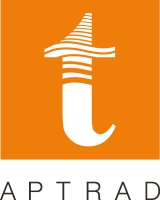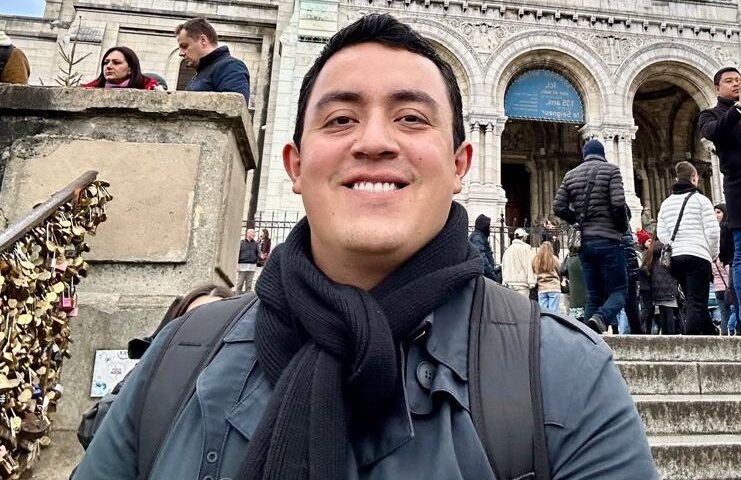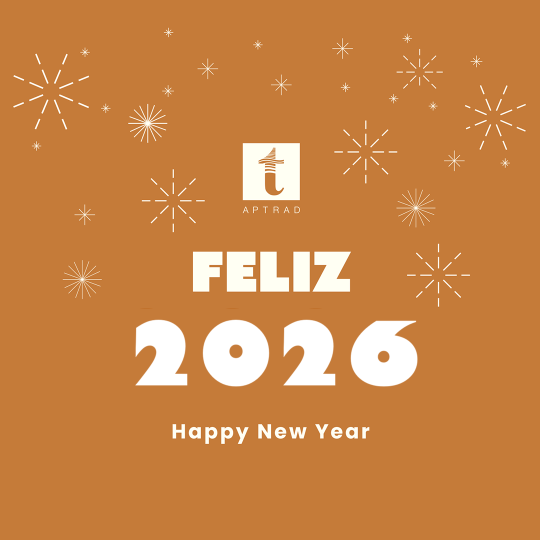Tradutores e Intérpretes pelo Mundo – Daniel G. Menez

Inovação na tradução: a importância da especialização e da experiência
20/11/2024
Novas roupagens, a mesma essência
30/12/2024Daniel G. Menez is a Mexican translator, specialised in legal, finance, and oil & petroleum texts, from English to Spanish. We talked about some of the aspects of his career in sworn translation, the importance of associations, and he gave some advice for the new generation of professionals.
APTRAD: Tell us a little bit about yourself, how you started out in this career, and what made you choose it.
My journey into translation began at a very young age. I found myself naturally drawn to languages and started translating on my own, more as a personal challenge than out of necessity. By the age of 8 or 9, I realized that translation was something I was truly passionate about. I loved the process of transforming meaning from one language to another, capturing the nuances and emotions behind the words.
When it came time to choose my college path at 18, I originally intended to study translation, but due to life circumstances, I pursued a degree in International Studies instead. However, my passion for translation never waned. While studying, I started working for an online company, translating DIY articles into Spanish, which helped me build a solid foundation in various subject areas.
Determined to pursue my dream, I continued developing my translation skills through self-study, reading books, taking specialized courses, and gaining hands-on experience. Ten years ago, I was officially appointed as a sworn translator in my hometown. I later earned my appointment as a sworn translator in Mexico City, and four years ago, I became a Federal Sworn Translator for English and Spanish.
This career has allowed me to combine my love for languages with a commitment to delivering accurate, culturally nuanced translations, and I feel fortunate to have built a fulfilling career in this field.
APTRAD: How would you describe a “normal” day in your working life?
In the world of translation and interpretation, I don’t think the concept of a “normal” day truly exists. Each day brings new challenges and opportunities, which is part of what makes this field so dynamic and engaging. However, there are a few constants that shape my routine. I always start my day with a cup of coffee and a quick scan of the news in various languages, which helps me stay informed and connected to the linguistic and cultural nuances of the languages I work with.
Since I primarily work from home, I make it a point to step out a couple of times a week, often to a local coffee shop, to break the routine and experience a change of scenery. It’s a great way to recharge and stay connected with the world around me, especially since translation can be such an intensive, solitary task.
My love for travel also means I’m often working from different locations, which adds another layer of variety to my schedule. On top of this, client demands can shift quickly, and there’s often a sense of urgency in meeting tight deadlines—clients frequently need their translations as if they were due “yesterday.” This makes flexibility and time management key aspects of my daily workflow.
In essence, while there may not be a “normal” day in the traditional sense, the unpredictability and constant engagement with different languages and cultures make every day rewarding.
APTRAD: Are you a member of any professional association/organisation? If you are, what made you join it? If not, why haven’t you joined yet?
Yes, I’ve joined two professional translation organizations: the Colegio Mexicano de Licenciados en Traducción e Interpretación (CMLTI) and the Organización Mexicana de Traductores (OMT).
I became a member of CMTLI because it’s the newest translation organization in Mexico. The organization offers access to workshops, specialized resources, and events that help me refine my skills and stay updated with industry trends. Being part of CMTLI also connects me with a network of professionals who are passionate about the same fields, which has been invaluable for collaboration and knowledge sharing.
The OMT, on the other hand, is a broader organization that covers many areas of translation. It provides excellent professional development opportunities and access to a diverse network of translators working in different domains. Joining OMT has helped me expand my knowledge and stay informed about the latest practices and technologies in the translation industry.
Both organizations have contributed to my growth as a translator, providing support, credibility, and access to resources that enhance my professional journey.
APTRAD: From your experience, what makes a “good” professional in this area?
A good professional in the translation industry is someone who combines linguistic expertise with cultural sensitivity and a strong commitment to accuracy and consistency. They must possess excellent command of both the source and target languages, not only in terms of grammar and vocabulary but also in understanding idiomatic expressions and regional variations.
Equally important is cultural awareness, as effective translation often requires conveying not just words but the underlying meaning, tone, and context of a message. A good translator knows how to adapt content to resonate with the target audience while preserving the original intent.
Attention to detail and research skills are also key, especially when dealing with specialized fields like legal, medical, or technical translations. A commitment to ongoing learning, whether it’s staying up-to-date with language trends or understanding new tools and technologies in the industry, also sets apart a true professional.
Finally, reliability, meeting deadlines, and maintaining a high standard of work under pressure are essential qualities. A good translator is also a good communicator, willing to collaborate with clients and colleagues to ensure the best possible result.
APTRAD: What do you like the most and what do you like the least about your work?
What I enjoy the most about my work as a translator is the constant intellectual challenge and the opportunity to engage with diverse cultures. Every project is different—whether it’s translating legal documents, medical texts, or creative content—each requires a deep understanding of the subject matter and careful attention to detail. The process of transferring meaning between languages, while preserving the original intent, tone, and cultural nuance, is incredibly rewarding. I also love how this profession keeps me learning; there’s always a new term, concept, or industry to explore, which keeps my work fresh and dynamic.
Another aspect I truly appreciate is the flexibility the profession offers. As a translator, I can work from virtually anywhere, which has allowed me to travel and experience different cultures firsthand while continuing my work. This geographic freedom has enriched not only my personal life but also my professional one, as being immersed in different languages and cultures has sharpened my skills and broadened my perspectives. The ability to balance my work with my love for travel and learning is something I find incredibly fulfilling.
On the flip side, one of the more challenging aspects of the job is the frequent urgency of deadlines. Clients often require translations on very short notice, which can sometimes make it difficult to balance multiple projects or maintain a healthy work-life balance. Additionally, because translation can be a solitary profession, long hours spent in front of a computer can sometimes feel isolating. However, I find that careful planning, flexibility, and regularly stepping out of my workspace help mitigate these challenges.
Another challenge is the occasional undervaluing of the translation profession. Many people outside the industry underestimate the time, effort, and expertise required to produce high-quality translations. They may see it as a quick task that simply involves swapping words between languages, when in reality, it requires in-depth research, contextual understanding, and a precise rendering of meaning. Advocating for the value of professional translation services is an ongoing part of the job that can sometimes be frustrating but is also crucial in elevating the industry as a whole.
APTRAD: What advice would you give someone who wants to become a translator and/or interpreter?
My advice is simple: take the leap and pursue it without hesitation. There’s often talk, even among colleagues, about how technology will replace human translators in the near future. While it’s true that automation is becoming more prevalent, I firmly believe that if the quality of your work is indistinguishable from that of a machine, then the future may indeed be uncertain. However, for professional translators who continually refine their skills and provide high-quality, nuanced translations, the demand for our services will remain strong. Quality, cultural understanding, and the ability to interpret context are areas where machines still fall short, and that’s where a professional translator excels.
Another critical piece of advice is to specialize. As the saying goes, “A jack of all trades is a master of none.” In our industry, specialization can set you apart. Whether it’s legal, medical, technical, or literary translation, focusing on a niche allows you to build deep expertise and become a trusted expert in that field. This not only enhances the quality of your work but also helps you attract clients who value your knowledge and precision in that particular domain.
APTRAD: Is there anything else you’d like to share with our readers?
Absolutely. Translation and interpretation are much more than simply switching one word in a context for a word in another language -they are arts which need to be honed, customized, and most importantly, joined across cultural boundaries. For those aspiring to enter this field, I cannot emphasize enough the importance of continuous training. After all, languages grow, industries develop, and technology grows at an extreme pace so training and retraining in any new features is important. Gaining skills through promoting oneself in certification courses, workshops, and in sessions where improvement can be made will distinguish you in this field which is highly competitive.
Ethics are also very important in the job of a translator or an interpreter. Sensitive, confidential, or critical information is handed around quite a lot, so to retain professionalism and integrity at all times is important. Being accurate, neutral, and willing to keep clients’ and fellow employees’ secrets is key to earning credibility. We are not only linguists but also representatives of the two cultures as well as the clients and our work does have consequences when it is out in the real world, so we are responsible for ensuring that the meanings and purpose of the initial text is not lost in translation.
Specialization is yet another important aspect in excelling within this profession. Focusing your attention on a particular field whether it is legal, medical, technical or literary translation, you are bound to yield great mastery in your field and earn trust from your clients. Specialization enables you not only to work on higher value of work but also to have an easier time identifying clients who require your expertise in a specific area. Knowing your market, understanding where your services and skills would sell most, and bringing your business in line with such demands are extremely useful strategies that work greatly for success.
Additionally, AI should not be seen as a replacement, despite its impact across many industries, but rather as a complementary tool in the translator’s toolkit. AI tools lack cultural appreciation, creativity, and contextual comprehension, that’s why translation professionals are irreplaceable when it comes to interpreting delicate situations, however, artificial intelligence and machinery can help in expediting monotonous tasks and managing substantial data. Therefore, this combination of artificial intelligence and machinery does not spell the end of translation as long as the mainstream concerns of quality, culture understanding, and context imposition are still upheld. As a consequence, gaining understanding about how to adopt AI for your advantages may improve potential productivity in translation processes.
Building a successful career in this profession involves, among other things, building professional relationships, which include networking and not only with translation professional, but also with potential clients. Belonging to professional associations or organizations, attending professional conferences or events, and interacting with professional co-workers help to find employers, gain mentors, and find new customers. It allows one to be seen, helps obtain the required assistance, and prepares us to face the troubles of the profession. The constant interactions in the process of translation and interpretation are actually some of the most important sources of development and improvement. Therefore, in addition to helping you improve your career, interacting with other players in the industry allows you to contribute to the greater cause of professionals.
Thank you, Daniel, for answering our questions!
Find out more about Daniel G. Menez you can check their website www.linguaspro.com and follow them on Facebook [https://www.facebook.com/linguaspro], LinkedIn [https://www.linkedin.com/in/danielgonzalezmenez/]
Se quiser saber como se tornar um associado da APTRAD, consulte aqui [https://bit.ly/3eTVpK0] ou acompanhe as nossas redes sociais em Facebook [https://bit.ly/32Mrkde], LinkedIn [https://bit.ly/3humLZe], no Twitter [https://bit.ly/30IZICW] ou no Instagram [https://bit.ly/3metM5R].
Biografia:
Daniel Gonzalez Menez is a court-certified translator and avid globetrotter. He began his career as a freelance translator and now runs a thriving translation agency offering services in over 150 language pair combinations.


